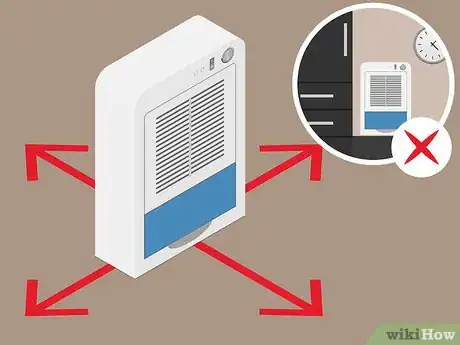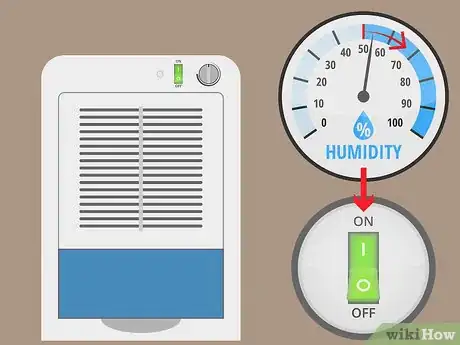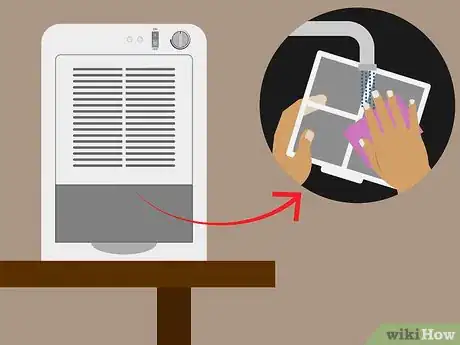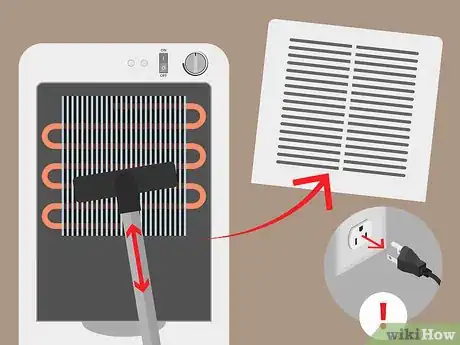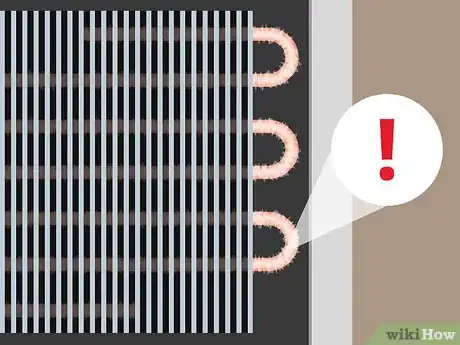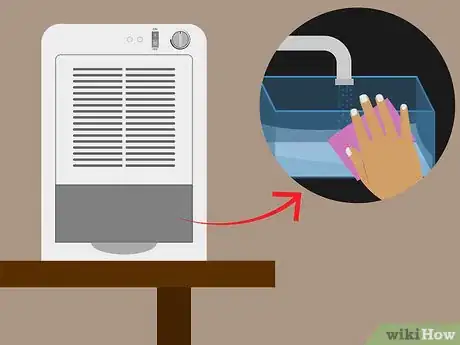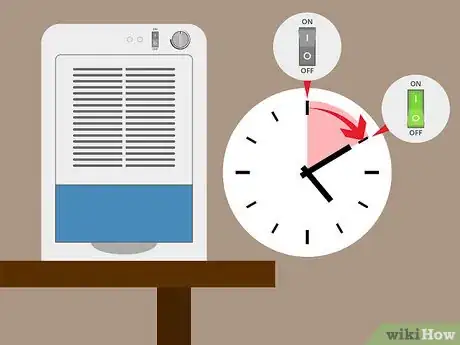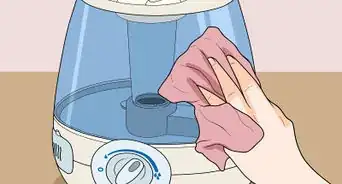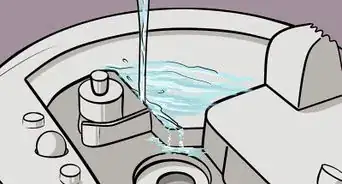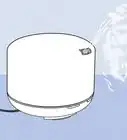wikiHow is a “wiki,” similar to Wikipedia, which means that many of our articles are co-written by multiple authors. To create this article, volunteer authors worked to edit and improve it over time.
wikiHow marks an article as reader-approved once it receives enough positive feedback. In this case, 90% of readers who voted found the article helpful, earning it our reader-approved status.
This article has been viewed 55,212 times.
Learn more...
The performance and efficiency of a dehumidifier can be crucial to keeping your home or office comfortable, especially in moist, humid climates. Using a dehumidifier can also prevent mold or mildew from growing in your living space. If your dehumidifier fails to work properly or efficiently, your home can sustain damages as a result; however, there are preventive steps you can take to maintain and improve the efficiency of a dehumidifier. Continue reading this article to learn more about these steps.
Steps
-
1Close all doors and windows in the location where you run your dehumidifier. This will prevent your dehumidifier from running constantly throughout the day and night, which can potentially decrease the lifespan of your dehumidifier.
-
2Place the dehumidifier in an area where air can circulate efficiently through the appliance. If you place the dehumidifier against a wall or large piece of furniture, the dehumidifier may have to work harder in order to function effectively.
- Verify that your dehumidifier sits in an area with at least 12 inches (30.48 cm) of free space around each of its air vents to allow for proper air circulation.
Advertisement -
3Run your dehumidifier only when humidity levels are higher than 50 percent. When you run your dehumidifier at any other time, your appliance will most likely run continuously and have very little impact on the overall air quality of your living space.
- Monitor humidity levels by reviewing the humidistat built into your dehumidifier, or by purchasing a separate humidistat reader for your home or office.
-
4Replace the filter on your dehumidifier or clean it at least once per year. This can prevent any dust, mold, or mildew from collecting or growing on the filter, which can decrease the overall efficiency of the dehumidifier.
- Consult the user manual or with the manufacturer of your dehumidifier to determine the exact steps for replacing the filter or performing filter maintenance.
-
5Clean the dehumidifier coils once per year. The air that passes through the coils will often contain dust and fungal spores that affect the performance of your dehumidifier.
- Turn off your dehumidifier, then unplug it from the electrical outlet.
- Use a vacuum attachment to remove dust from the coils, or mist the coils with water from a spray bottle, then wipe the coils down using a soft cloth.
-
6Check the dehumidifier coils for frost in cooler temperatures. In temperatures below 65 degrees Fahrenheit (18.33 degrees Celsius), frost can sometimes build up on the coils. If frost is left undetected or remedied, the efficiency of your dehumidifier will significantly decrease.
- Turn the dehumidifier completely off if frost exists on the coils, then wait for the ice to melt and for the room temperature to increase before using the dehumidifier again.
-
7Clean the water container of your dehumidifier as often as needed. The water collected from the air will often become moldy or stale, and can negatively affect the efficiency of your dehumidifier.
-
8Wait at least 10 minutes to turn your dehumidifier back on after it has been turned off. This will allow the pressure in the appliance to equalize fully, which can result in the prolonged life of your dehumidifier.
Community Q&A
-
QuestionDo they run constantly?
 Community AnswerNo, set the humidifier at a percentage, usually between 40 and 60%, and the unit will cycle off and on. It will shut off if you are not draining the unit directly into a drain. Each unit has a tank in it that will fill up and shut the unit down once it is full. The unit will run again once you empty and re-install the tank.
Community AnswerNo, set the humidifier at a percentage, usually between 40 and 60%, and the unit will cycle off and on. It will shut off if you are not draining the unit directly into a drain. Each unit has a tank in it that will fill up and shut the unit down once it is full. The unit will run again once you empty and re-install the tank.

